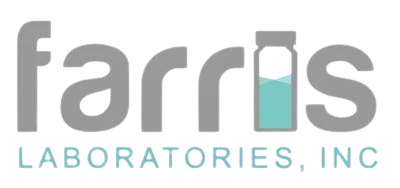Safely Purchasing Personal Protective Equipment (PPE)
The importance of purchasing good personal protective equipment (PPE) cannot be overemphasized. Having personal protective equipment promotes prevention at home and safety at the workplace, thereby improving operational efficiency. PPE also helps in making households safe as it protects against accidents and injuries. Given the crucial role it plays, the quality of your PPE has a significant effect on its efficiency. At Farris Labs, we are committed to making quality personal protective equipment (PPE) available in an easy and customer-friendly manner. Having been in business for over three decades, we have the industry experience and logistics to provide timely and vital information that can guide your choice of PPE.
We have put in place working processes that enhance quality job delivery and the customer experience. With these processes, the procurement of PPE becomes easier. We do not only make purchase and delivery services fast and easy for clients, but we also ensure that our customers buy quality PPE in line with their specifications and requirements. In addition, we pay close attention to details and feedback from our customers which helps to create additional ways to improve our processes and service delivery. As a result, we have been able to build a credible relationship with our customers which fortifies our brand reputation and strengthens our brand presence in the industry.
Types of Personal Protective Equipment (PPE)
The essence of personal protective equipment is to protect against injuries and safeguard persons by promoting safety. For optimal safety measures, you should use the proper PPE type. Hence, we have highlighted the common types of PPE and the appropriate PPE categories:
- Head Protection: This set of PPE is designed for protecting your head against falling objects or hitting your head against objects while working or during leisure or sporting activities. PPE under this category includes guards, helmets, bump caps, hard hats, among others.
- Face Protection: Such PPE could be face shields, eyewear accessories, visors, safety glasses, etc. This PPE is mostly useful when you are involved in welding activities, using gas, or emissions, among others.
- Hand Protection: Beyond cuts or chemical reactions, hand protection PPE such as gloves, gauntlets, etc, can also protect you against harsh weather conditions such as extreme cold or severe sunburns.
- Respiratory Protection: These are PPE that you can use to protect yourself against inhaling harmful substances such as smoke, specks of dust, powder, etc. PPE like face masks, respirators, are helpful in this regard. For instance, many people have adopted the use of face masks to protect themselves against the spread of the coronavirus. You may want training on how to use this set of PPE, due to their sensitivity.
- Ear Protection: Another important set of PPE is ear protectors. If you are a factory worker or you work in noisy areas, the use of an ear protector is crucial. Your ear protector should not only protect you from noises or high sounds, it should make you feel comfortable to avoid any hearing defect. Items such as earplugs, acoustic foam, communication sets, are common ear protectors.
- Body Protection: This PPE is not only useful in work environments, it can also be used in cases of harsh weather conditions, chemical contaminations, among others. Hence, some of the body protection PPE are life jackets, bodysuits, high visibility clothes, etc.
Do Face Masks Help in Preventing Coronavirus?
Yes, the CDC and other health organizations around the world have stated the benefits of masks in preventing and mitigating the spread of respiratory diseases such as the coronavirus that we are all experienced with. Part of these control measures includes social distancing directives and the use of face masks. In the wake of relaxed lockdown measures and travel bans, the use of face masks has become a core part of our lives, and we cannot underestimate the positive impact of face masks in controlling the spread of coronavirus. The face mask prevents the transmission of the virus by reducing the transfer of respiratory droplets from one person to the other. As a result, it slows down the pace at which people can become infected with the virus.




